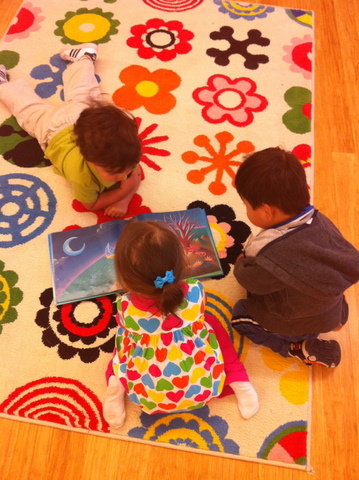Developing Empathy and the Cooperative Spirit

Begin with Manners
For the 3-6 year old child, the urge to belong is very strong. One of the primary ways we orient ourselves to a group is by adopting the code of behaviors recognized as appropriate. Every day, often without being aware of it, each of us is using what amounts to manners to negotiate emotional and social territory. While we may think of manners as a societal facade, manners usually reflect deeper cultural values. In a general but very important way, teaching a young child good manners communicates that there are simply certain ways we behave in certain situations, not because of a reward but because it gives us dignity within our community.
Empathy and Self-Restraint
"Empathy underlies many facets of moral judgment and action." (Goleman, 105) Empathy, the ability to know that others can and will share your feelings, and to be able to respond to the feelings of others, is an essential component of human society. Self-restraint: Keeping a cool head when the emotional going gets tough is one of the most valuable tools a person can possess. We need to be calm enough for the rational part of the brain to moderate our emotional responses. Accomplishing this calm means learning to recognize and name emotions as they come up. It also means practicing handling emotions appropriately. In Montessori, self-restraint is taught within the context of "respect." Practicing respect for others, in turn, teaches children to demand respect for themselves. A child who is constantly reliant on others for direction will not exercise her will, and may ultimately not develop the capacity to discern right from wrong.
"A will in agreement with what the individual is doing finds the path open for its conscious development. Our children choose their work spontaneously, and by repeating the work they have chosen, they develop an awareness of their actions. That which at first was but a vital impulse has become a deliberate act. The little child’s first movements were instinctive. Now, he acts consciously and voluntarily, and with this comes an awakening of the spirit."
(Montessori, The Absorbent Mind, 253.)

